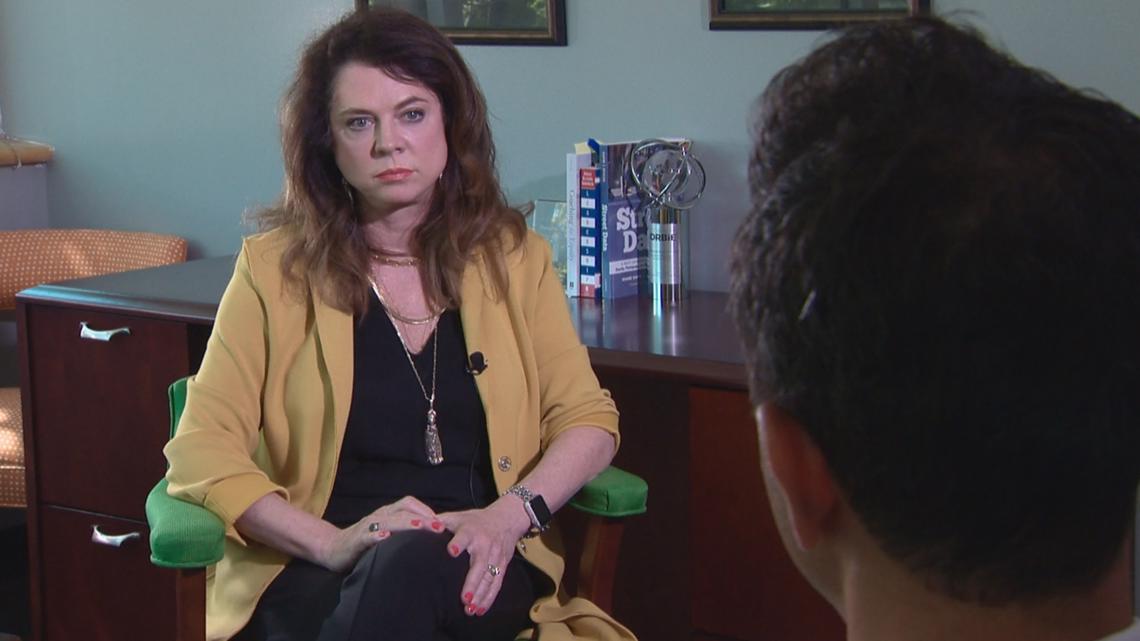CHARLOTTE, N.C. — When students returned to the classroom after the summer break, Charlotte-Mecklenburg Schools made it clear to their parents that there will be financial consequences from now on if district-issued Chromebooks, iPads or hot spots are lost or stolen.
The district-wide changes follow a WCNC Charlotte investigation that identified nearly $1.5 million worth of missing student technology.
"This was one of the things to get fast-tracked and I made it a dedication of mine and a priority of our department," Candace Salmon-Hosey, the chief technology officer for CMS, said. "I believe we need accountability. We need oversight at the district level."
CMS rolled out new fees, student forms and procedures at the start of the school year as part of an overhaul of the school system's device program. Salmon-Hosey, who started in early 2022, promised changes in the wake of WCNC Charlotte's reporting.


"I think collectively in leadership our interim Superintendent Hugh Hattabaugh, the cabinet members that I work with, my department, I think collectively, we all want to do the right thing," she said.
A WCNC Charlotte investigation previously found CMS lost track of more than 10,000 student devices during the pandemic, funded mostly by federal COVID-19 dollars. The district made no concerted effort to recoup money from students and parents to cover the losses and taxpayers paid for thousands of mobile hot spots that went unused. WCNC Charlotte's investigation also found some student devices occasionally end up at pawn shops.
Upon learning WCNC Charlotte's findings, Salmon-Hosey, created a task force to address the discovery before the start of the new school year. District officials believe the pandemic, with its remote, then hybrid, then in-person learning, exacerbated the problem.
In a Sept. 8 email to CMS principals, assistant principals and school technology contacts, Salmon-Hosey outlined the district's commitment moving forward. CMS will better track assigned technology when a student changes schools, require mid-year device check-ins, limit the number of new devices a student can receive and charge families consistent fees when computers are damaged, lost or stolen.
She believes the $50 fee for lost or stolen devices is much better than the "hit or miss" fee collection that existed prior.
"What we wanted to do was level the playing field," she said. "It's across the board and it's equitable and that's what we wanted to do was to ensure a level of equity, so everybody knows what to expect."
The district also created a financial hardship waiver for families with extenuating circumstances.
In addition, CMS hired a company to help high schools collect student technology and dedicated an extra two weeks of "extended employment" at the end of last school year and over the summer, so schools could establish accurate inventories.
"What your investigative journalism did, it almost highlighted some of the needs of the schools as I came in," Salmon-Hosey said. "We want to change the culture and you know that doesn't happen overnight."
Beyond surveying teachers and staff, the district also invited students to be part of the process.
"It is baffling that families have taken school-issued technology to pawn shops!" an iMeck Academy student wrote in an email. "I believe the district should hold students and families accountable for their actions, whether it be irresponsibility leading to a stolen item or a foolish accident like leaving a computer outside and it rains ... Whatever decision district officials make, it is evident that all Charlotte-Mecklenburg Schools should be held to the same standard and have the same systems in place ... Schools should do inventory counts more often to manage the counts more accurately."
In the months since WCNC Charlotte's investigation, Salmon-Hosey said the district has located some of the missing computers inside schools and collected others from families. She believes technology is linked to teaching, learning and student achievement and believes the changes are critical to the district's future success.
"It isn't anything I take lightly," she said. "I began my career as a teacher, as an educator in the classroom. I was actually a career technical education teacher. I taught computer apps and business law and I have two beautiful daughters that grew up in the public school system. I have been in educational technology forever and it's just something I believe in. I've seen the value and I've seen where it's dismissed and I don't want to be on that side of the equation."
Contact Nate Morabito at nmorabito@wcnc.com and follow him on Facebook, Twitter and Instagram.
WCNC Charlotte is committed to reporting on the issues facing the communities we serve. We tell the stories of people working to solve persistent social problems. We examine how problems can be solved or addressed to improve the quality of life and make a positive difference. WCNC Charlotte is seeking solutions for you. Send your tips or questions to newstips@wcnc.com.

